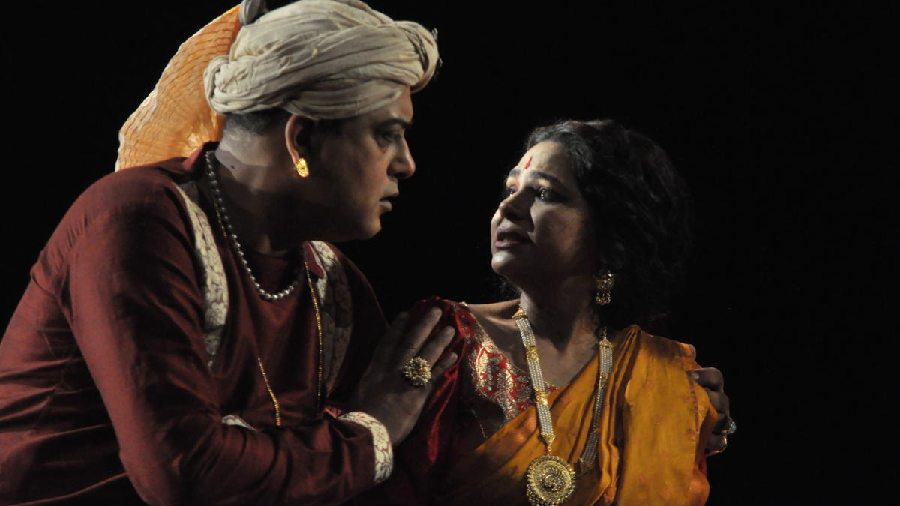Women’s voices are getting increasingly heard within the ambit of proscenium theatre. The outcome is varied and extremely innovative in terms of aesthetics.
Binodini Opera ran to packed houses every time it was staged since its March 8 premiere at the Academy of Fine Arts in the inaugural evening of Nandipat’s Narir Mancha. Scripted and directed by Abanti Chakraborty, this lavish production is a welcome departure on several counts. It is centred around Binodini Dasi (1863-1941), whose brief but eventful acting career spawned scores of plays ever since Brajendra Kumar Dey wrote Nati Binodini for Natta Company in 1973 and Bina Dasgupta attained legendary acclaim in the lead role.
While the popular jatra production focused primarily on the meeting of Ramakrishna Paramahansa and Binodini, Chakraborty decides to shift the focus on the actress who played a pivotal part in shaping Bengali public theatre in its formative years, often at the expense of her body and soul. That Binodini, in spite of her red-light background, had a mind and a will at her disposal and had a string of affairs with some of the influential figures of the time, has all the makings of a raunchy bio-drama.
Chakraborty took slices of that, concentrating on her quest for love, recognition and marriage, but not necessarily in this order. Binodini Opera flaunts the director’s signature all over — the female bonding, the rope symbolism, the cage that drops from the top — holding the audience captive for more than 150 minutes despite a desperate playing to the gallery to finish it off.
Sanchayan Ghosh’s multi-layered set offers amazing flexibility. The research, aided by Shibashis Bandyopadhyay and Rudrarup Mukhopadhyay, was sufficient. Subhadeep Guha’s music, topped by Rajyasree Ghosh’s supreme singing, was adequate.
Sudipta Chakraborty’s powerhouse performance in the lead role was studded with moments of vulnerability, especially in the scenes featuring her beaus (played with measured sensibility by Padmanabha Dasgupta, Sujan Mukhopadhyay and Biswajit Das). Tathagata Chowdhury and Indudipa Sinha also left strong impressions.











